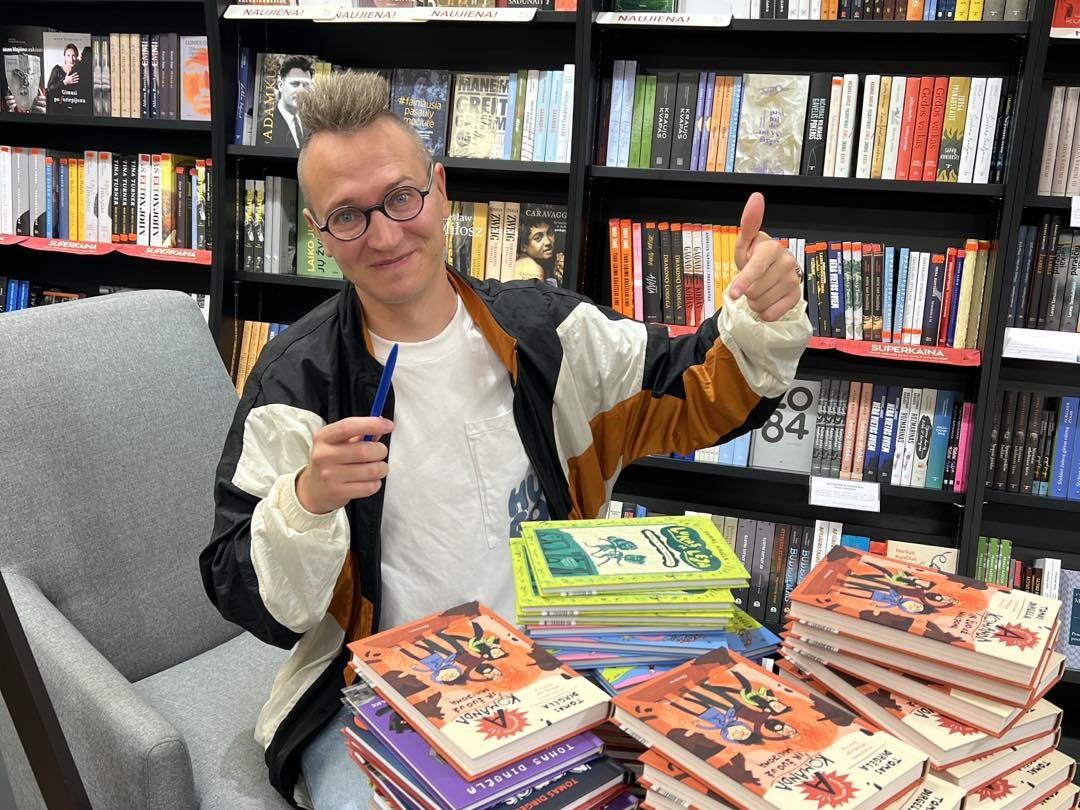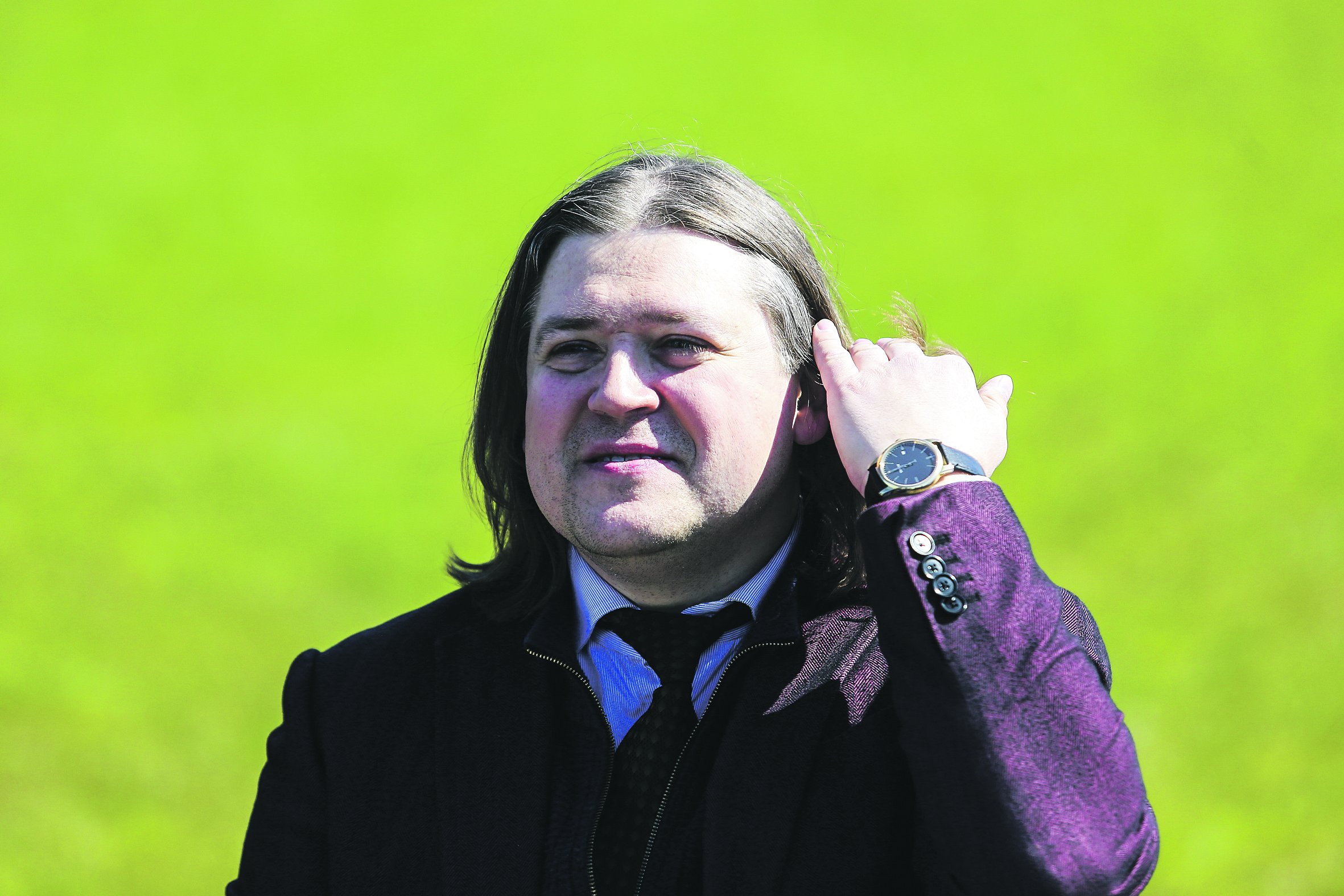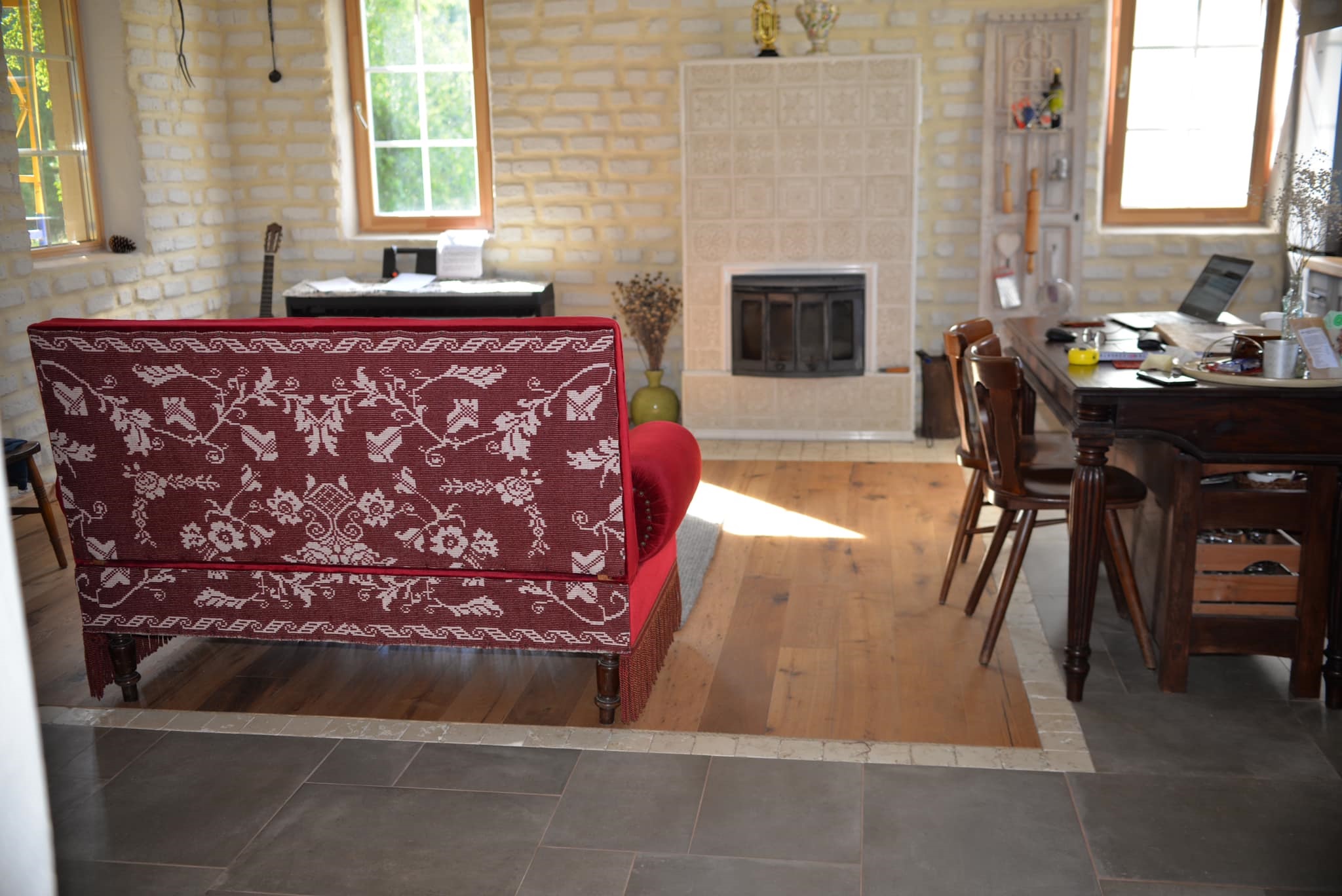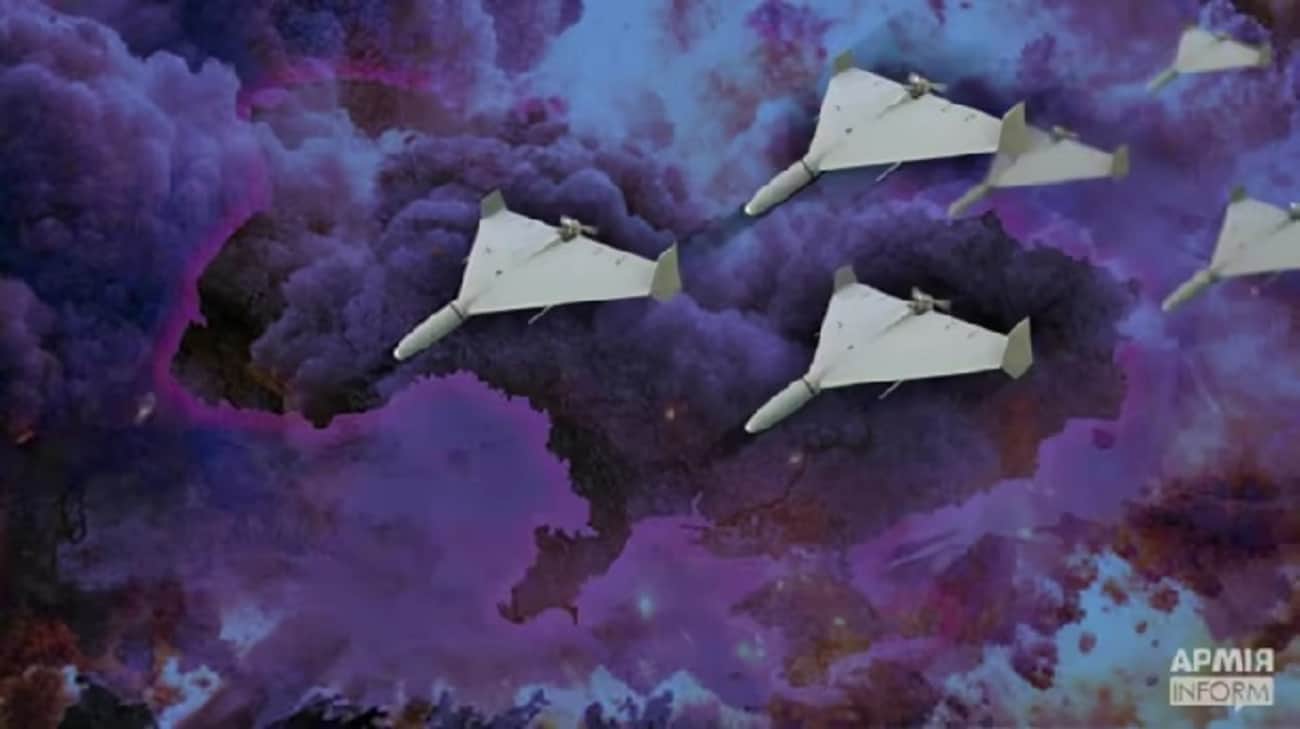I discovered my way very early

– You said you didn’t like reading books in your childhood. How did you want to write?
– I didn’t like books. I was reading only for the plus to make my grandmother praise. But then I discovered Astrid Lindgren’s books and felt the joy of reading. I realized that reading could be a good pastime and you don’t have to read just to make anyone praise.
Already in fourth grade, I started writing the first poems and then I realized that when I grew up, I wanted to be a writer. Very early I discovered that path and then it was only a matter of time when I would be that writer. I mean a writer living alone from writing. From the fourth grade, I wrote poems, participated in all kinds of pupils’ poetry competitions, where I followed very well, and raised the name of the school and the entire Palanga city.
– Were there no pressure from relatives and those around you because of this choice?
– Initially, there was dissatisfaction from my grandmother when I wrote poems instead of my homework. Understandably, science was the most important. But later, when I saw that I was doing well, support came. Already in the last classes you went to the hallway of the school and those « cooled » screams something similar: « Here you write the poems, girls just have to write poems. » I am glad that there are no such things in schools now.
Also, before you go to work and move to writing alone, your relatives tried to discourage that you would not live in writing in Lithuania that it could only be a hobby and better to have some safe work. But his wife’s support was enough, given that at that time our first child was born and we had taken a home loan. My wife believed in me, and I also believed in myself.
– You withstood bullying at school. Do you have tips for current students?
– I don’t know, I just didn’t pay attention to both and doing what I was interested in. It is very important for every person creating a school age to have someone they can trust. I was very lucky because I had the best teacher. If you read, greetings to Jūratė Galauskienė, one of the coolest Lithuanian teachers from Palanga Old Gymnasium. That’s what she encouraged me to write, to come back to my style if I deviated.
Photo by T. Dirgėla’s personal archive
– And did you imagine you would become a poet?
– I imagined that I would write to the kids and that it would probably be poetry. I remember, in the library, I used to gather poetry books based on what the poet’s photo on the back cover looked like. If he was with a coat, a scarf and a beret, I thought it was a real poet and needed to read his book. At first I thought I would write to adults, but it happened that love for children visited my teenage years. Then I had a tiny cousin that we spent a lot of time with: I took it from kindergarten and played on birthdays, walked on the seaside, played, read. And that love for children, along with love for creativity, somehow merged in me.
– Let’s talk about Vytautas Magnus University, where you studied the pedagogy of Lithuanian language and literature. There you met your future wife, organizing various events and initiatives together. Without romance and creation – what academic atmosphere do you remember?
– At first, I was nervous that I joined the pedagogy, and the acquaintances were gently laughing that you wouldn’t work now, just the teacher. But already in the first year, it turned out that our faculty compared to the Faculty of Lithuanian University, the Faculty of Lithuanian Studies, it is very strong to talk about the creative side, the students, what the lecturers do, what their research and research. This is why I was very pleased.
Nowadays, when it seems that technology, children and young people seem to be the attention of their beloved children’s writer, recognizes and is interested everywhere. Here is space.
And anyway, when you come to a big city from a little Palanga, where no one controls you, the first course passed by student. It used to be, transferred money for a month, I wasted that money a week, and then I live potatoes and pasta. But the whole study time was very fun. I remember that on the second day of the school year I was barely thrown out of the university dorm because we came up with a night with a friend to play percussion and guitar in the hallway. But it all ended well and the first year of the first year I broke up – I tasted that Vilnius freedom and started to tend to science.
The lecturers were professionals, but the biggest impression was that they were very warm people. Žydronė Kolevinskienė transported us to the poetic Druskininkai autumn, and Vidas Kavaliauskas had the Lithuanian Estrades Music Museum. You will find out that lecturers have some interesting hobbies, unrelated to science, and you start to look at them in a different way.
– Have you used the opportunities for Artes Liberals Study model to choose other specialties?
– I had chosen journalism, but when I found out that I would need to go to an interview in some town, I ran out of courage. Nevertheless, after a couple of summers, I already worked as a journalist in my native Palanga. I played in my teenage years, so I beat the drum in the ensemble, so far I have been playing yet. And other things I chose were related to creative work. I studied creative writing with Vaidas Juknaitė. I remember left a great impression that we went to her during the lectures and that the conversation was in a completely different way. These are these extra studies very well so you don’t turn into your own juice and learn something new.
– After graduation, did you immediately take the writer’s job?
– No. After the university, I worked in one publishing house, later in Lukiškės Prison and Vilnius Correctional House as a Lithuanian teacher. It was probably the only year when I was working in a direct educator’s specialty. After that, I was a kindergarten teacher. At that time, my first book for children came out, and I was inviting a book to school, and as a result, I was increasingly asking for work. I realized that I wanted to be the master of my time and started working as a journalist in a couple of colored magazines where I had to call all the stars and ask what they were eating for breakfast or what kind of car was driving. I am glad that I had the freedom to choose the interlocutors myself, so I was talking to people who are really interesting to me: actors, writers, musicians. Then I wrote my second book, and when the publishing house offered a contract for the third, I realized that it was possible to live from it.
– According to the diversity of work, you have been studying at the Artes Liberales University, which has prepared for almost every case of life.
– Namely. For those who plan to study after two years, I would advise you that you do not need to remember myself in that study title. At least in my time, it was a common view that if you entered there or there, you will be able to work only that and that and more. Even today, you will find people who think that after graduating Lithuanian philology can only work as a teacher.
In general, the university is not just those studies, that is, communication, working in groups where you learn to cooperate, learn to stand in front of the audience, and other skills you will need in everyday situations, not just your future specialty.
Photo by T. Dirgėla’s personal archive
– What advice would you give to students, what do you find most important?
– Based on my experience, I can tell you that the most important thing is to go your way and ignore who will tell you what. It is still important that even though you have completed your studies in one area, you can do something different. Just go ahead where you feel that is your way. No matter how philosophically or boring he sounded, he has heard a hundred times, but when you experience your coat, you know it is right.
– What if you don’t know where your way?
– We now live in these times, where there is no longer such pressure after completing the twelfth grade to study immediately. I think I need to not panic, take a break, travel around the world, talk to interesting people, and may be in mind during those years. It is important not to be afraid to stop and think.
– Maybe not to be afraid to change your studies?
– Yes, yes. I remember my classmate left a year later and chose the exact opposite thing – mathematics or chemistry. The other passed the exams and entered the law. It is never too late to take and transfer. Also, not nervous if you did not get where you wanted. Everything will come together.
– Tom, and how are you doing now to be a star?
– I am very pleased with the word « star ». But not for ourselves, but because we are talking about a children’s writer, reading, books. That these days, when it seems that technology, children and young people still pay attention to their beloved children’s writer, are recognized everywhere. Here is space. This is probably the proof of anyone who says that modern children are not interested in books.








